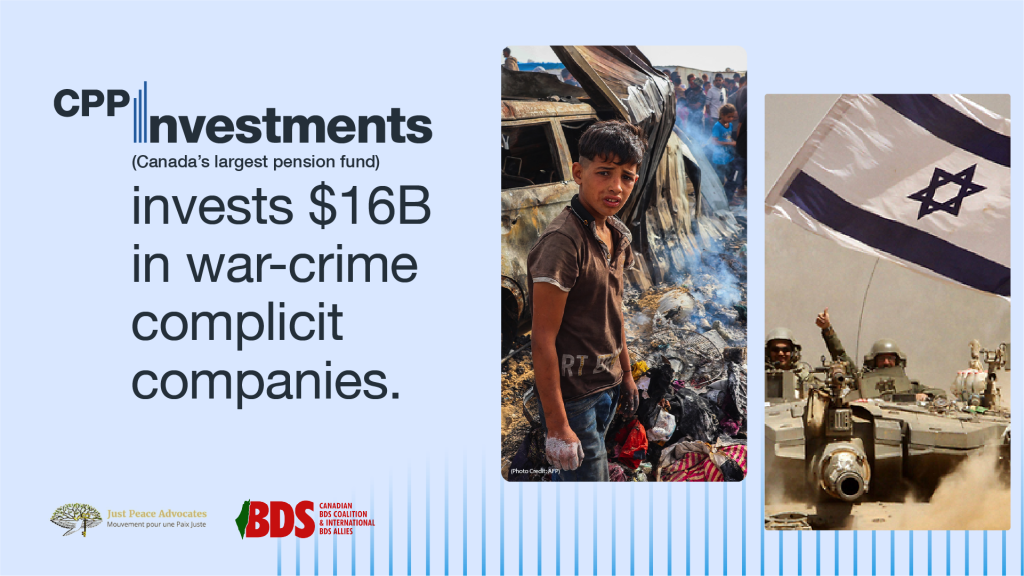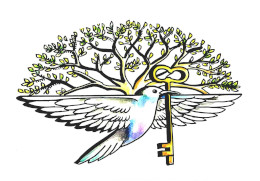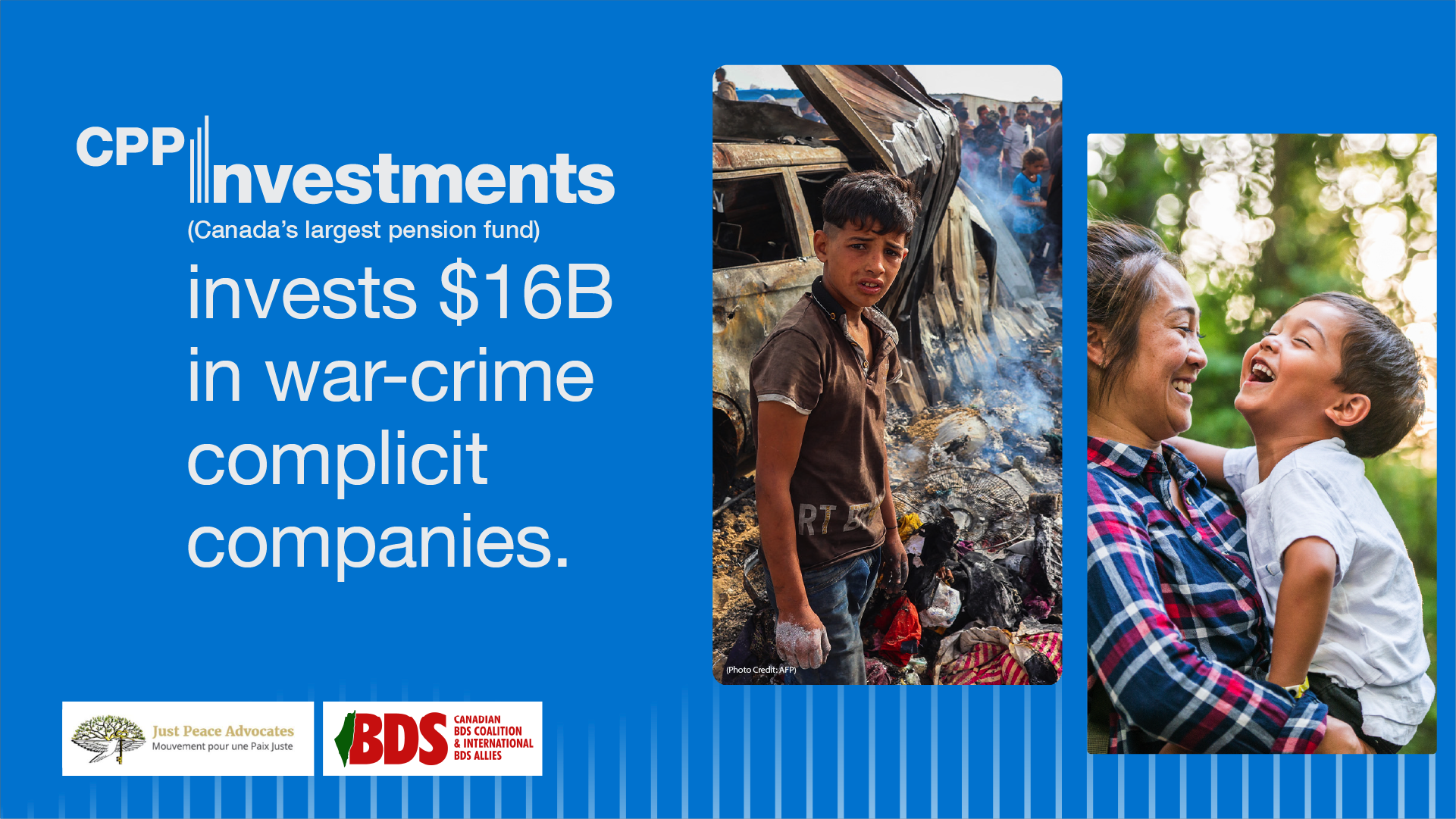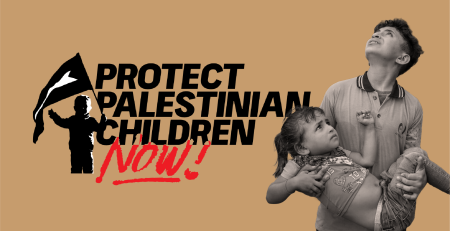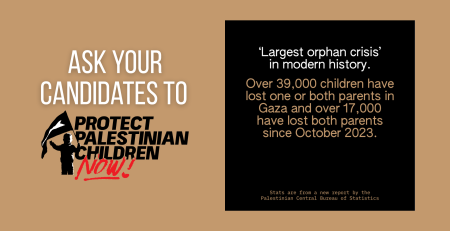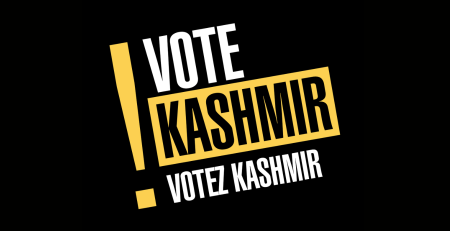For five years, the Canada Pension Plan has been told by tens of thousands of its contributors and recipients that investing in war crimes is not acceptable.
However, eight months into the current genocide, the Canada Pension Plan has increased its investment in war crimes, and potentially genocide, to over $16 billion.
Take a moment to let the Canada Pension Plan know you demand they divest from companies complicit with war crimes and genocide.
The Canada Pension Plan Investment Board (CPPIB) investments include over a quarter-million dollars invested in companies deemed by the UN to be in violation of international law, specifically, Bank Hapoalim, Bank Leumi Le-Israel, Booking Holdings, Israel Discount Bank, Mizrahi Tefahot Bank, Motorola Solutions, and Shufersal Ltd.
It also includes companies potentially involved in the Israeli genocide being committed on on the Palestinian people of Gaza through weapons and arms companies such as General Dynamics, L3Harris Technologies, Lockheed Martin Corp, Rheinmetall, Northrop Grumman Corp and others.
Surveillance companies such as Palantir Technologies, companies involved in house demolitions such as Mitsubishi Corp, companies stealing resources from occupied Palestine such as Chevron Corp and Heidelberg Materials AG, along with many other companies complicit in war crimes are part of the CPPIB portfolio.
WSP continues to dominate the Canadian public equity fund of the Canada Pension Plan with a value of $3.4 Billion. This amount has increased from $1.68 Billion in 2020. In the fall of 2022, that a submission was made to the UN to add WSP to the UN database. This was submitted by Al-Haq and Just Peace Advocates, and endorsed by 105 organizations, and we would expect the UN would seriously consider adding WSP to the update now underway.
The International Centre of Justice for Palestinians – Canada (“ICJP – Canada”) has provided the Government of Canada with notice of intent to seek the prosecution of Canadian officials who are allegedly complicit in Israel’s war crimes. ICJP Canada is also considering expanding the scope of its initiative to pursue accountability of Canadian companies who are allegedly complicit in Israel’s war crimes. Like Canada’s Crimes Against Humanity and War Crimes Act, the Rome Statute of the International Criminal Court applies to both state actors and private individuals. The latter makes it an offence to “aid, abet or otherwise assist” in the commission of war crimes and crimes against humanity”.
The CPPIB (Canada Pension Plan Investment Board) is entrusted with fiduciary responsibility of the Canadian’s public pension plan and thus is expected to undertake enhanced due diligence to ensure that its investments are in line with Canada’s responsibility under international and domestic law.
See below for a full list of investments complicit with war crimes and potentially genocide, that were part of the CPPIB March 31, 2024 year end report.
Our demands:
- CPPIB take immediate steps to divest from the companies listed on the UN database and ensure that no future investments include any companies on the UN database.
- CPPIB review its current holdings based on the companies identified by AFSC Investigate and Who Profit, and divest from all companies involved in support of occupation, war crimes, apartheid, and genocide.
- CPPIB to divest from WSP unless CPPIB can influence WSP to withdraw from the Jerusalem Light Rail project and to make a public statement that it has done so.
- CPPIB put in place a transparent process to ensure that companies are vetted for violations of human rights and international law. This would involve reporting back publicly on the review that CPPIB committed to undertake in this regard in 2021.
Investments in companies identified by the United Nations as complicit in war crimes
Based on the CPP’s March 31, 2024 annual listing of equity holding, the CPP seems to be invested in 7 companies for a value of $264 million that are listed in the United Nations (UN) Database of companies complicit with human rights violations
CPP investments that are on the United Nations Database:
The Canadian Pension Plan based on its March 31, 2023 report is invested in the following companies that are listed on the UN Database of business enterprises considered to be in violation of international law.
| Bank Hapoalim (e,f) | 2,177 | $28.00 |
| Bank Leumi Le-Israel (e,f) | 2,637 | $30.00 |
| Booking Holdings (e) | 29 | $141.00 |
| Israel Discount Bank (e,f) | 2,142 | $15.00 |
| Mizrahi Tefahot Bank (e,f) | 259 | $13.00 |
| Motorola Solutions (e,d) | 62 | $30.00 |
| Shufersal Ltd (e.g) | 731 | $7.00 |
These include a total $264 M
Note: information about the companies, verified by Who Profits, an independent Israeli research organization as per links provided with each of companies listed and/or AFSC Investigate.
Details associated with each of these companies listed can be seen on the United Nations High Commissioner for Human Rights report.
Given that the aggregate investments are a very small proportion of the foreign traded portfolio, it seems it is an easy move for the CPP Investment Board to divest from companies that have been named as complicit in acts contributing to the maintenance of illegal settlements.
(Scroll down to learn more about the UN data base and the rationale including the letter codes).
WSP Global Inc
WSP Global is a Canadian management and consulting firm that specializes in engineering projects. This company, according to Who Profits, is involved in the planning of the Israel railway system that crosses into the occupied West Bank and constitutes settlement infrastructure. AFSC Investigate describes WSP as “a Canadian management and consulting firm that specializes in engineering projects. Involved in the planning of the Israel railway system that crosses into the occupied West Bank.” WSP continues to dominate the Canadian public equity fund, with $,3442 Million of WSP holdings dominating the Canadian portfolio. This amount has increased from $1,683M in 2020.
In the fall of 2022, a submission has been made to the UN to add WSP to its database. This was submitted by Al-Haq and Just Peace Advocates, and endorsed by 105 organizations. The UN is in the process of updating its listing presently so this submission should be considered shortly.
Companies identified by AFSC Investigate as complicit in war crimes
Our analysis of the March 31, 2024 year-end holdings shows that CPPIB is invested in 48 additional companies deemed by AFSC Investigate to have substantial, ongoing, and intentional complicity in severe violations of human rights and international law related to occupied Palestine and the Syrian Golan.
These include:
(in Millions of dollars)
Total of these companies : $12.630 Billion
Total for these investments of over $ 16.3 B, in these companies on the UN list and identified by AFSC Investigate.
Note: information about the mentioned companies, have been verified by Who Profits, an independent Israeli research organization and/or the American Friends Service Committee “Investigate” as per links provided with each of companies listed.
Canada Stop Arming Israel
Given the current legal case brought forward by the Canadian Lawyers for International Human Rights in regarding to the Canadian government complicity in arms exports, we also identified the following additional companies from the current Canada Stop Arming Israel listing, that have not been already identified by the UN and/or AFSC Investigate.
| Company | Shares | Value (Millions) |
| Honeywell International | 85 | $24.00 |
| Leidos Holdings | 152 | $27.00 |
| Rheinmetall | 46 | $35.00 |
| Safran SA | 694 | $213.00 |
| Thales SA | 100 | $23.00 |
Total: $322 million in these additional five companies.
***error noted of double counted $31M, so total $321 M for these six, and total below if $16.622.
CPPIB’s investments in war crimes and potentially genocide
With these over 50 companies, there is $16.622 billion invested in companies complicit with war crimes and potentially genocide.
This investment amounts to 2.6% of the CPPIB total net worth of $632.3 billion that are contributing to companies that are complicit with violations of human rights and /or international law. It , therefore, would seem reasonable that the CPPIB would take steps to divest to remove for itself the risk of complicity with war crimes and potentially genocide, if not to ensure that its investments meet the CPPIB’s stated ESG policy.
These concerns are raised are in the broader context of ethical investment related to Canada’s public pension fund investment.
The CPPIB needs take all steps necessary to ensure that the activities of all companies included in all of its portfolio are in compliance with international law governing war crimes. We remind you that in Canada, parties that are complicit in war crimes are liable to criminal prosecution under the Crimes Against Humanity and War Crimes Act,[1] including corporations.[2]
The CPPIB has been reminded in a letter send May 31, 2024, that under Article 1 of the Fourth Geneva Convention, all high signatories in which Canada is one, are required to take actions to ensure that violations of the Fourth Geneva Convention do not occur under any circumstance.
Also, the CPPIB has been again reminded that, ever since the Quebec Superior Court’s decision in Bil’in (Village Council) v. Green Park International Inc.,[3] it is also possible for a corporation to be held liable in a civil lawsuit in Canadian courts for complicity in a war crime. Although the Bil’in case was dismissed on jurisdictional grounds, Canadian courts in recent years have shown increasing willingness to assert jurisdiction over the overseas activities of Canadian companies where violations of human rights and international law are concerned,[4] and it is far from certain that the same result would be obtained now.
[1] S.C. 2000, c. 24.
[2] R.S.C., 1985, c. C-46, ss. 22.1-22.2.
[3] 2009 QCCS 4151 at para. 176.
[4] See e.g. Garcia v. Tahoe Resources Inc., 2017 BCCA 39; Araya v. Nevsun Resources Ltd., 2017 BCCA 401 (pending appeal on different issue).
The letter sent to CPPIB
Note: an entry of $31 M was counted two times, so has been adjusted in an email to CPPIB, and corrected for information provided above.
Learn more about the UN Database
The UN Database was released on February 12, 2020 in the Report of the United Nations High Commissioner for Human Rights (A/HRC/43/71) after the independent international fact-finding mission to investigate the implications of the Israeli settlements on the civil, political, economic, social and cultural rights of the Palestinian people throughout the oPt, including East Jerusalem. There are currently 97 companies listed by the United Nations High Commission for Human Rights.
This investigation followed the United Nations Human Rights Council Resolution 31/36 which defined the Database by reference to specific human rights violations include the following:
(a) The supply of equipment and materials facilitating the construction and the expansion of settlements and the wall, and associated infrastructure.
(b) The supply of surveillance and identification equipment for settlements, the wall and checkpoints directly linked with settlements;
(c) The supply of equipment for the demolition of housing and property, the destruction of agricultural farms, greenhouses, olive groves and crops;
(d) The supply of security services, equipment and materials to enterprises operating in settlements;
(e) The provision of services and utilities supporting the maintenance and existence of settlements, including transport;
(f) Banking and financial operations helping to develop, expand or maintain settlements and their activities, including loans for housing and the development of businesses;
(g) The use of natural resources, in particular water and land, for business purposes;
(h) Pollution, and the dumping of waste in or its transfer to Palestinian villages;
(i) Captivity of the Palestinian financial and economic markets, as well as practices that disadvantage Palestinian enterprises, including through restrictions on movement, administrative and legal constraints;
(j) The use of benefits and reinvestments of enterprises owned totally or partially by settlers for developing, expanding and maintaining the settlements.
UN Security Council resolution 2334 (2016) reaffirmed that settlements have no legal validity and constitute a flagrant violation under international law.
Now over $35B invested in war crimes by pensions in Canada, with this increase in CPPIB
2023 CPPIB Investments (and links to earlier years)
